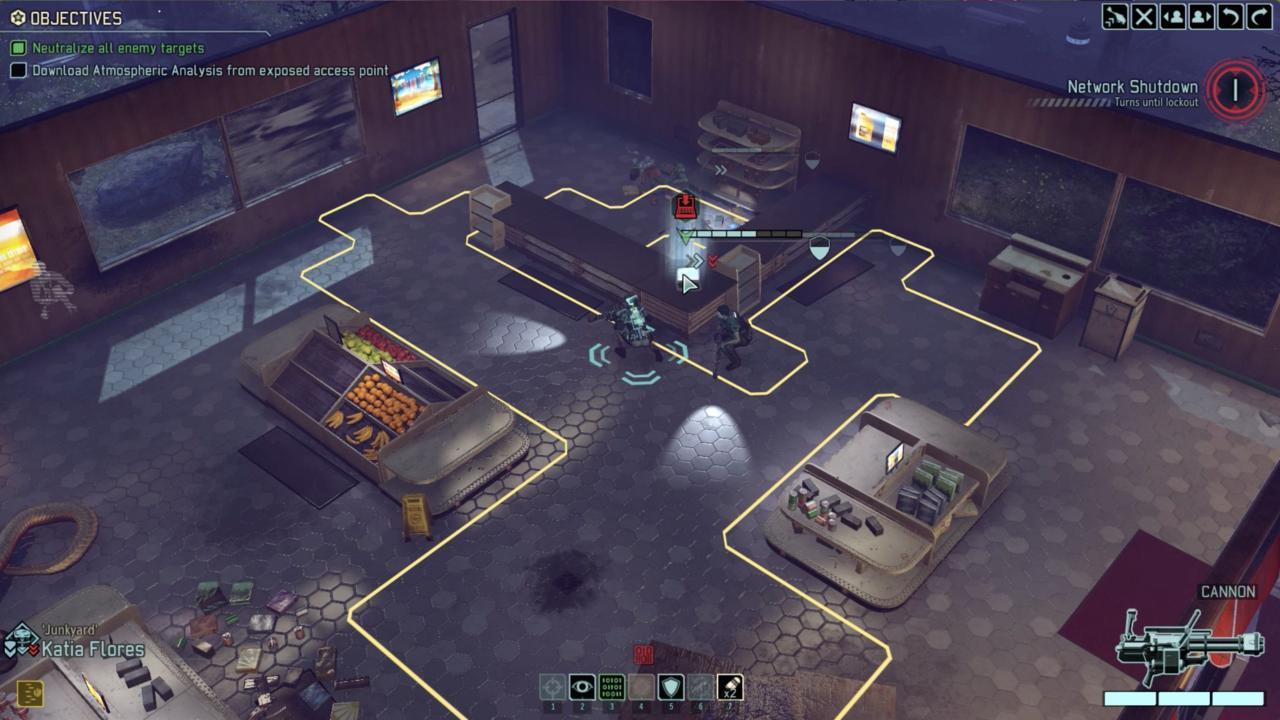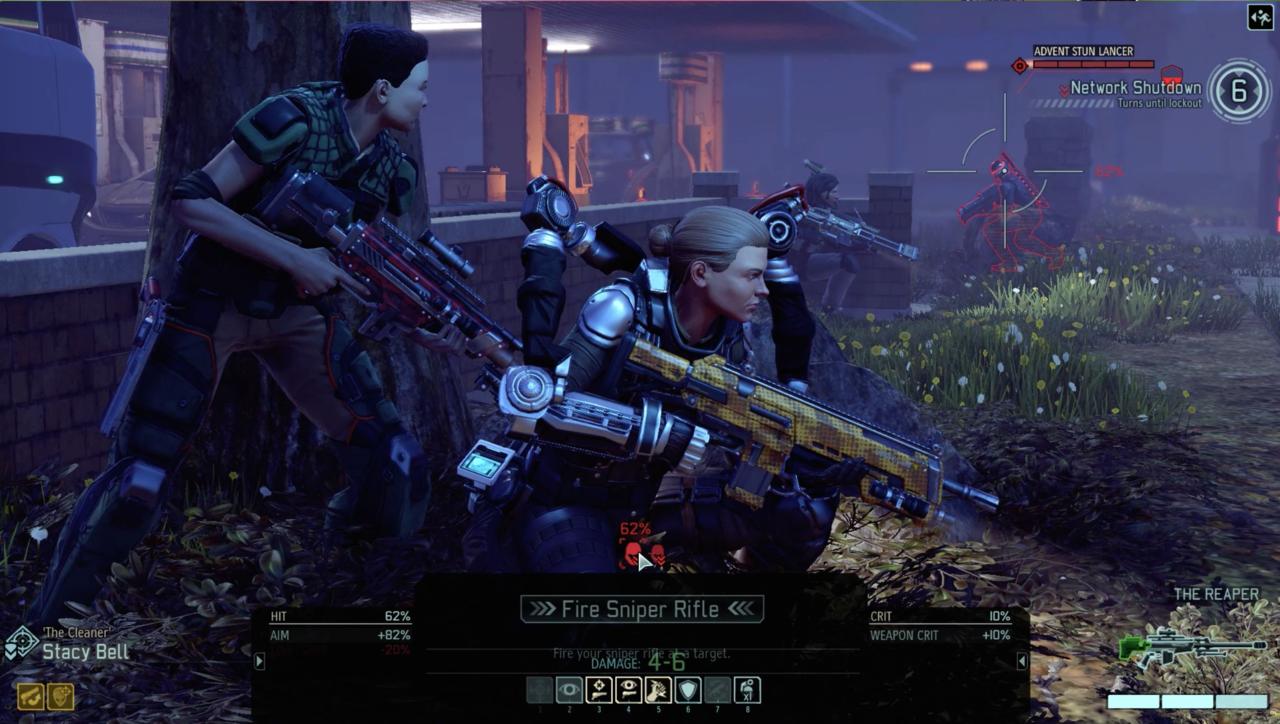Almost every video game is a dare, a challenge thrown down by the creators that you cannot beat their game. The beauty of the modern XCOM series is that it takes these dares very seriously.
The XCOM games wear you down with the persistent threat of permadeath and of being ill-prepared for alien ambushes. Because of the high risk of significant, permanent loss in the acclaimed 2012 remake, we had little guilt in restarting a match if too many troops died. We know we cheated ourselves with these do-overs. You only see a battlefield with fresh eyes once, and it becomes less challenging if you replay a match once you know how the map is laid out and where the ambushes are coming from.
Due to our anticipation for XCOM 2 and the respect we have for developer Firaxis, we're seriously considering playing the entire sequel without mulligans, no matter how many troops we lose to permadeath.
We're also certain that we will change our mind after the first dozen missions.
Yet in a sequel that now has procedurally generated maps, do-overs may not be of much help.
Creative director Jake Solomon and his team at Firaxis handle their job as designers with selective realism. At first we thought being able to carry downed squadmates to evac points in XCOM 2 was a compromise, something to ease the heart-wrenching disappointment of permanently losing a soldier.
Another Crab's Treasure Is A Soulslike 3D Platformer | GameSpot Review Stellar Blade Review Nintendo 64 – April 2024 Game Updates – Nintendo Switch Online Super Monkey Ball Banana Rumble - Official Multiplayer Features Trailer PUBG | Erangel Classic Returns Gori: Cuddly Carnage | Meow Launch Date Announcement Trailer Genshin Impact - "Arlecchino: Afterglow of Calamity" | Collected Miscellany Marvel Rivals - Official Loki Character Reveal Trailer | The King of Yggsgard Fortnite Festival - Official Billie Eilish Cinematic Season 3 Trailer Remnant 2 - The Forgotten Kingdom | DLC Launch Trailer Stellar Blade - Official "The Journey: Part 2" Behind The Scenes Trailer | PS5 Games Dead by Daylight | Tome 19: Splendor | Reveal Trailer
Please enter your date of birth to view this video
By clicking 'enter', you agree to GameSpot's
Terms of Use and Privacy Policy
We were dead wrong.
As Solomon explained, "Even if you carry them, dead's dead. Carrying is a way to save certain soldiers, ones who are unconscious or bleeding out. If you don't carry them out to the evac point, they are considered dead. There are some cases where you have to evac soldiers in the middle of a mission, like poisoned squadmates . But the only practical reason to carry a dead guy home is if they have nice gear."
Depicting a character's untimely death often plays out with dramatic flare, making you feel the weight of your tactical misjudgments. Deaths play out with dynamic camera angles that get you close to the action. It made XCOM a surprisingly kinetic and cinematic game and the effect is even more filmic in XCOM 2.
While the base gameplay is fixated on turn-based action, this allows many of the games' other elements to be more energetic. As Solomon elaborated, "XCOM has to be turn-based because of the stakes involved. If the player can make such mistakes that their soldiers can die, then the player has to be in complete control of making those decisions. Otherwise it feels completely unfair. Even if it was the best AI in the world, the player would feel cheated if a soldier died through no fault of his own. We need to create conditions where the player wholeheartedly accepts his mistakes. But we try to add everything we can to put the player close to the action, to make the gameplay fluid and continuous.
"Turn-based really works well mechanically but we want to make sure that the world doesn't feel completely frozen. Our artists do a good job in thinking about that with the animation and cameras."

In XCOM: Enemy Unknown, the human race operated from a defensive, reactionary posture as it tried to repel the alien threat. XCOM 2 poses a different "What if?" scenario: What if the aliens had won?
The aliens in XCOM 2 spin their victory as peaceful conquerors, discretely disposing of select humans to dispel any possible rebellion. But whether they like it or not, the aliens have a rebellion on their hands. We see the return of urban areas and small towns as recurring settings, but there's also a wealth of natural outdoor locales, underscoring the guerrilla tactics of the rebels. Penetrating enemy encampments undetected in snowy forests is a welcome change and often looks reminiscent of the stealth-centric Tom Clancy games.
Then there's the matter of XCOM 2's PC exclusivity. As much as the previous game excelled on multiple platforms--even on tablets--we can't help but admire Firaxis' non-console focus (at least for the time being) for XCOM 2.
XCOM: Enemy Unknown managed a multi-platform release on PC, Xbox 360, and PS3 at launch, but Firaxis has more PC-centric ideas this time around. "When we knew we were going to make XCOM 2," Solomon explained, "we knew there were a number of high-level things that we wanted to accomplish. Based on feedback, we decided to make procedural maps to ensure your experience is different from everybody elses. If your experience is unique and unpredictable, that is XCOM at its best.
"We also knew we wanted to have full physically based rendering and have a lot more fidelity in terms of animation. We wanted to offer modding as well; that was a huge element. In all, it was about going all out and being more open with the stuff that we created. We wanted to give you all the assets, all the code, and give you an editor. At Firaxis, PC has always been our expertise, and we wanted to do this at a reasonable time frame with the team we have."

When following up this train of thought with the possibility of a console version, Solomon said that Firaxis hasn't ruled it out, "No, it is definitely a possibility. But I can say for sure that the only platform we have right now is PC."
Coming into the sequel with thorough knowledge and experience of the previous installment offers advantages that XCOM newcomers won't have. That doesn't necessarily mean experienced players will survive XCOM 2 the first on anything harder than Normal. But for a franchise notorious for its difficulty, Firaxis' idea of 'Normal' in XCOM 2 might mean something different to a newbie versus someone who's beaten Enemy Unknown at least once.
Solomon is very cognizant of this distinction, "It is something we think about a lot. At this stage, there's a lot of more balancing involved. It's not like the first game where everyone's coming into it fresh. Obviously, I came into XCOM 2 having played a ton of XCOM so I've had to be very careful about my own interpretation of difficulty. Our audience might have totally different expectations on difficulty; like those guys who beat the first game on Invincible Iron Man. I've never beaten the game on Invincible Iron Man! I think that's f***ing impossible. The luck that we have with XCOM is that it's turn-based and that it's meant to be a fair experience. In XCOM 2, we've tried to capture the spectrum that includes people who've never played XCOM as well as people who are simply naturals at XCOM."
XCOM 2's version of Earth is a bleak one. The rebels start at a disadvantage, but your troops have improved sneaking abilities and can infiltrate undetected during the first few turns of many matches. And for better or worse, your squadmates can be subjected to an array of disability states, as opposed to dying outright. But after the demands and challenges posed by XCOM: Enemy Unknown and the Enemy Within expansion, a host of curveballs in XCOM 2 is exactly what we'd expect from Firaxis.

